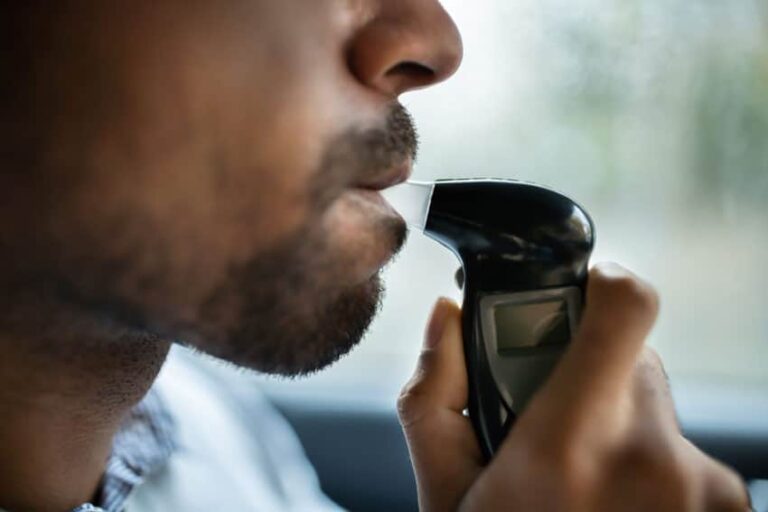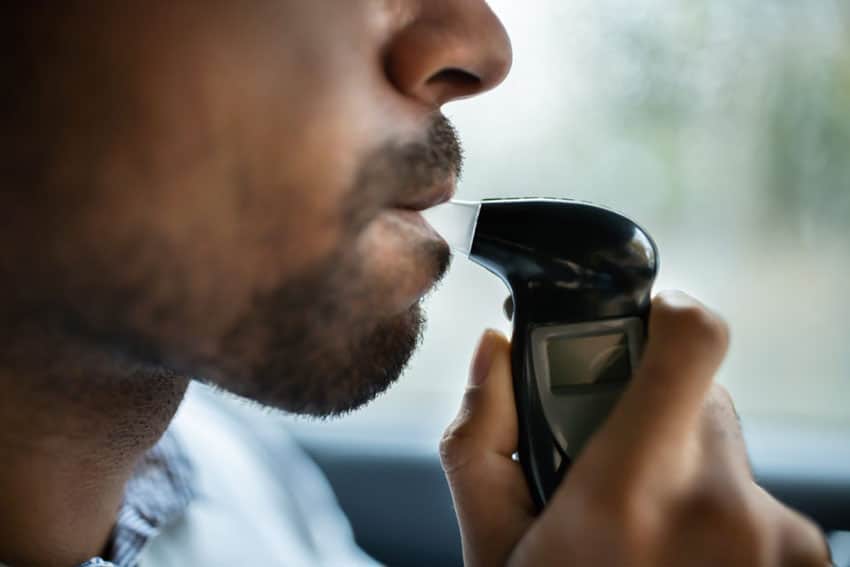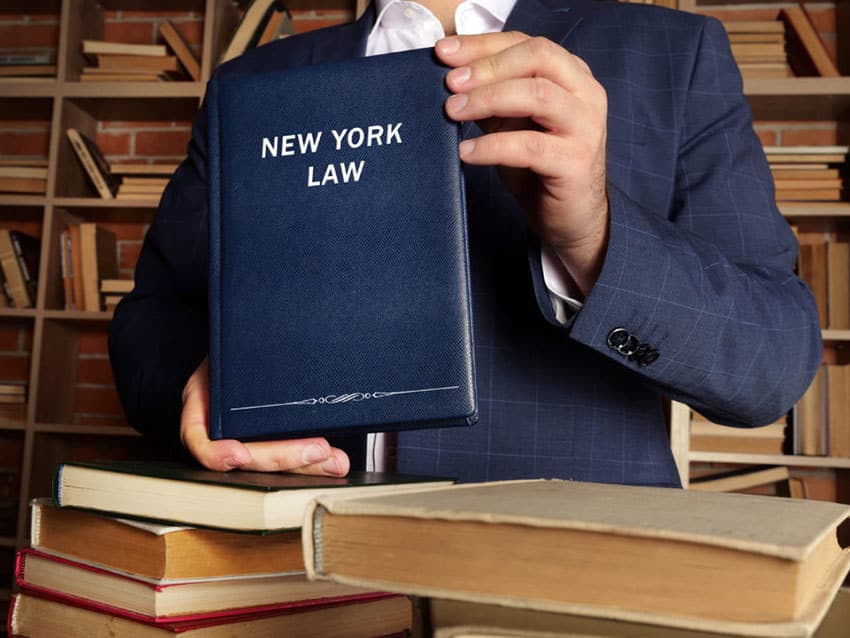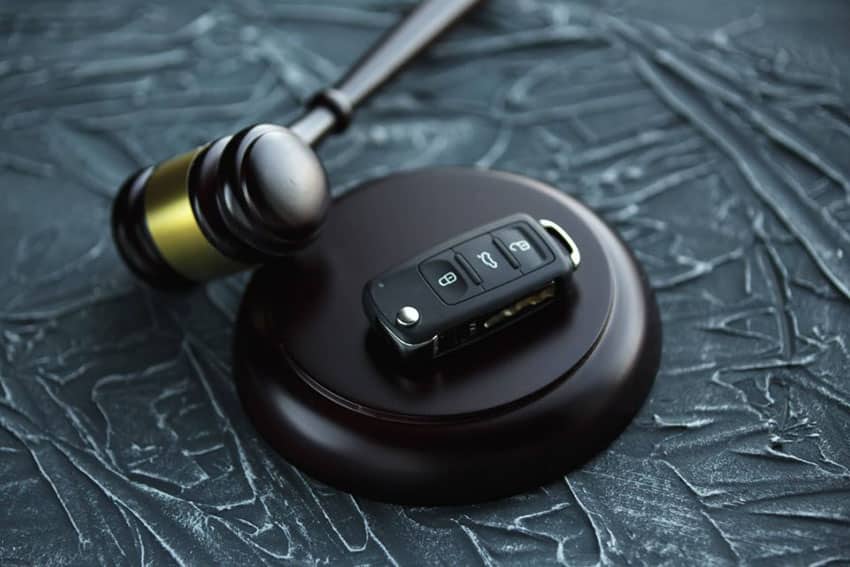Getting stopped by the police is a scary experience for anyone. This article is intended to give motorists some background information regarding traffic stops and any subsequent investigation by police. However, the main purpose of this article is to describe the differences between a Preliminary Breath Test (PBT), which usually occurs on the roadside, and the Chemical Breath Test (CBT), which occurs back at the police station.
There are significant distinctions between these two tests, and likewise different consequences subsequent to a motorist’s decision of whether or not to submit to the PBT and/or the CBT. Knowing these differences is critical in terms of making an informed choice of whether to take or refuse either test.
First, we will briefly address what occurs before and during the stop itself and the attendant investigation by police. Second, the PBT and CBT will be examined in turn, along with the possible consequences of a decision to refuse or submit to each respective test. Finally, there will be a brief discussion of the potential circumstances under which it may or may not be advisable to refuse to submit to a Chemical Breath Test.
The Initial Stop
By way of background, before a police officer can perform a traffic stop, he must first have reasonable suspicion of criminal activity, or an ‘articulable reason’ for the stop (often this takes the form of the driver having allegedly committed a traffic infraction in violation of the Vehicle & Traffic Law (VTL)). If a motorist does happen to be pulled over, it is almost certain that the officer will perform a preliminary investigation in search of evidence to support their reason for stopping the vehicle.
Another thing the officer will almost certainly be looking for (depending on the timing, location and circumstances surrounding the encounter) will be signs and/or evidence of intoxication. The signs and evidence the officer will be looking for right off the bat include any and all of the following: 1) The manner in which the motorist operated the vehicle; 2) The operator’s appearance and demeanor; 3) The condition of the eyes; 4) The motorist’s ability to smoothly and efficiently produce their license and vehicle registration; and 5) Whether there is any odor of alcoholic beverage emanating from the passenger’s compartment of the vehicle.
Once the police officer has made some preliminary observations, they may choose to continue their investigation by asking a few questions and asking the motorist to perform field sobriety tests to look for evidence of impairment or intoxication. If asked to perform field sobriety tests, it is almost certain the motorist will also be asked to submit to a Preliminary Breath Test (PBT), which is a roadside test and is intended to detect the presence of alcohol (the testing device is usually hand-held and commonly called an ‘alcosensor’ or ‘breathalyzer’). Sometimes the PBT device will produce a number value and sometimes it will simply produce a reading of ‘positive’ or ‘negative’ for the presence of alcohol.
The Prelimary Breath Test
The Preliminary Breath Test (PBT) is usually administered at the roadside as the last step in a police officer’s investigation when a motorist is suspected of driving while ability impaired or driving while intoxicated. These tests are commonly referred to as an ‘alcosensor’ or a ‘breathalyzer.’
Generally, before asking a motorist to submit to the PBT the officer will have first asked the person to perform a series of field sobriety tests intended to detect either impairment or intoxication by alcohol. These tests often include the ‘Horizontal Gaze Nystagmus,’ the ‘Walk and Turn,’ and the ‘One Leg Stand’ tests, among others. A motorist’s performance on these tests, along with the result or refusal of the PBT can give the police officer the Probable Cause they need in order to make an arrest for Driving While Intoxicated (DWI) or Driving While Ability Impaired (DWAI).
When deciding whether or not to take the PBT, it is important to know both the Pros and the Cons of taking or refusing the test:
If a motorist DOES choose to take the PBT, the biggest ‘pros’ are that the motorist is both seen as being cooperative with police in their investigation, and will not be issued a traffic ticket under VTL §1194(1)(b) for refusing to take the test (see below). The biggest ‘cons’ to submitting to the PBT are that the motorist may be providing evidence (or further evidence) of intoxication or impairment, and the result of the test may be offered as evidence in certain civil or pre-trial hearings. However, while evidence of the PBT result can be admissible in civil proceedings or a pre-trial hearing with regard to probable cause for arrest, the PBT result in terms of BAC value (i.e. .08, etc.) CANNOT be offered as evidence at a criminal trial for DWI or DWAI; this is primary evidentiary difference between results of the PBT versus the CBT.
If a motorist chooses NOT to take the PBT, the biggest ‘pro’ is that there will be one less piece of evidence for the police officer to rely on in finding Probable Cause to make an arrest. However, as noted above, the ‘cons’ of refusal on the PBT are that the police officer may see this decision as a failure to cooperate in the investigation, and may further interpret the refusal as evidence of consciousness of guilt (and therefore think that the motorist has something to hide). Furthermore, refusal to submit to the PBT will almost always result in the officer issuing the motorist an additional traffic ticket under VTL §1194(1)(b) for refusal to comply with the officer’s request to submit to a preliminary breath test.
To summarize, with regard to the Preliminary Breath Test, if a motorist is asked to take a PBT it is likely that the police officer has already detected some of the signs and noted some evidence indicating impairment or intoxication. Although submitting to the test will potentially provide additional evidence that might be used by the officer in forming the Probable Cause required to make a lawful arrest, a motorist who takes the PBT will likely get at least some credit for being cooperative, and also avoid receiving an additional ticket under VTL §1194(1)(b).
As you will see below, the Chemical Breath Test, which is offered back at the station, is an entirely different animal. Refusal to submit to the CBT has much more serious consequences than refusing the PBT, however, there are also some very legitimate reasons to refuse the CBT dependent on the circumstances, particularly with respect to the motorist’s record, and whether or not the motorist will be eligible for a Hardship or Conditional License.
The Chemical Breath Test
The Chemical Breath Test (CBT) is a breath test administered after a motorist is placed under arrest and taken back to the police station for processing (this test is often referred to as the ‘Datamaster’ or simply the ‘Chemical Test’). Refusal to submit to the CBT will often result in the motorist’s driving privileges being immediately suspended and subsequently revoked for a period of one year.
While a CBT result of .08 or greater is required for issuance of a ticket charging the motorist with DWI under VTL §1192(2) (DWI Per Se – BAC .08 or greater), a CBT result is NOT required for a charge of DWI under VTL 1192(3) (DWI – Common Law), which simply requires evidence of intoxication according to the ‘totality of the circumstances. Although refusing the CBT may expose a motorist to one less ticket at the outset, as we will see below, refusal of the CBT carries severe consequences affecting the motorist’s driving privileges over the following year. When deciding whether or not to submit to the CBT it is important to know the potential consequences which accompany this decision.
Following an arrest for suspicion of Driving While Intoxicated (DWI) or Driving While Ability Impaired (DWAI), the motorist will be transported back to the local police station or state trooper’s barracks for processing. As part of this process the motorist will be asked to submit to a Chemical Breath Test. Prior to administering the CBT, a police officer will almost always read the standard ‘refusal warnings’ which are intended to inform the motorist of the consequences of refusing to submit to the test. These warnings are required for a valid refusal, and among other things describe the attendant prompt suspension of the motorist’s license or driving privileges should they refuse the CBT.
The consequences of a refusal impact the criminal case in addition to exposing the motorist to a civil proceeding in which their driving privileges are immediately suspended and a hearing is scheduled to determine the validity of the refusal. If a refusal is deemed valid driving privileges will be revoked for a period of one year from the date of the hearing.
In order for a motorist’s refusal to be deemed valid, they must have been informed: 1) That they are under arrest for driving while intoxicated; 2) That a refusal will result in immediate suspension and subsequent revocation of driving privileges, regardless of whether or not the motorist is ultimately convicted of any offense under VTL §1192 (the ‘drunk driving statute’); and 3) That the motorist’s refusal can be introduced into evidence against them at any trial, proceeding, or hearing resulting from the arrest.
The primary consequence of a decision to refuse the CBT is that the motorist’s license will be promptly suspended pending a hearing before an Administrative Law Judge in a civil proceeding conducted by the Department of Motor Vehicles (DMV) which is separate and apart from the criminal case. As mentioned above, if the refusal is deemed valid driving privileges will be revoked for a period of one year from the date of the refusal hearing. Although the motorist is entitled a hearing to determine the validity of the refusal, these hearings are notoriously difficult to win. Provided that the motorist was given the appropriate warnings either before or after being asked to submit to the test, even silence on part of the motorist may be deemed a valid refusal. Likewise, half-hearted or insincere attempts to provide a breath sample may also be considered a valid refusal, resulting in a one year revocation of driving privileges.
When deciding whether or not to take the CBT, it is important to know both the Pros and the Cons of taking or refusing the test:
If a motorist DOES choose to take the CBT, the biggest ‘pro’ is that their license will not be promptly suspended. However, the ‘cons’ include that the motorist may provide the police with additional evidence of intoxication or impairment. Additionally, a CBT result of .08 or higher will almost certainly result in an additional ticket, and also provides the basis for Suspension Pending Prosecution, which allows the criminal court to suspend driving privileges at the time of arraignment. As will be discussed below, depending on the particular circumstances of the case, the motorist may or may not be eligible for a Hardship License and/or a Conditional License following a Suspension Pending Prosecution.
If a motorist chooses NOT to take the CBT, as discussed above their license or driving privileges will be promptly suspended and will in all likelihood be revoked for a period of one year unless the refusal is deemed invalid at the subsequent ‘refusal hearing’ (which again is a civil action independent from the criminal case). Furthermore, if a valid refusal is found, the motorist will not be eligible for Hardship or Pre-Disposition Conditional driving privileges, and can only obtain conditional driving privileges during the period of revocation post-plea or conviction for a §1192 offense and upon completion of the Drinking Driver Program (DDP). Additionally, a finding of a valid refusal will expose the motorist to a civil penalty of up to $750 as well as a Driver Responsibility Assessment (DRA) of $250 per year for three years.
To summarize, refusal to submit to the CBT can be advantageous and even advisable under certain circumstances; however, in other scenarios a motorist might be better off choosing to submit to the CBT. While there are no hard and fast rules with regard to answering the question of whether or not a motorist should submit to a chemical breath test, there are some general guidelines which may inform a motorist’s decision when it comes to the CBT. These respective situations will be addressed in turn below in the final two sections of this article.
Situations Where Refusal May Be Advisable
In general, refusal to submit to the CBT may be advisable under the following scenarios: 1) If there has been an accident involving serious injury or death; 2) If the DWI charge is a Felony (this will be the case if the motorist has any prior DWI convictions within the past 10 years); and 3) If the motorist is highly intoxicated such that they may produce a CBT sample of .18 or greater, which will result in a charge of Aggravated DWI under VTL §1192(2)(a)(a), and they have any prior convictions for drinking and driving.
The premise here is that where the criminal penalties with regard to the motorist’s license are more severe than the civil penalties generated by a valid refusal, it is better not to give the police any additional evidence to be used against the motorist, or evidence which might result in more severe consequences than those of refusing the test.
Situations Where Refusal Is Not Advisable
In general, refusal is NOT advisable: 1) Where the motorist is a first-time offender or would otherwise be eligible for Hardship and/or Conditional driving privileges; 2) Where the motorist has firm knowledge and is confident that they have NOT consumed enough alcohol to produce a CBT result of .08 or higher; and 3) Where the motorist has a good chance of taking a plea offer to, or being convicted of, a NON-ALCOHOL-RELATED driving offense in full satisfaction of the charges (under this scenario, even a first time offender found to be a valid refusal will be without driving privileges for at least one full year; this is because of the fact that without a conviction or plea under §1192 the motorist will be ineligible for the DDP and likewise ineligible for a post-disposition Conditional license).
The premise for submitting to the test is that where a motorist is facing a shorter suspension or revocation of their driving privileges under the criminal law than they are facing pursuant to the civil proceeding, it is better to take the CBT in order to minimize the period of suspension/revocation.
Conclusion
The information contained in the preceding article is intended to inform the motorist of both the differences between the Preliminary Breath Test (PBT) and the Chemical Breath Test (CBT), as well as some of the potential reasons to submit or refuse these tests. The attendant consequences of a decision to take or refuse either test can be severe or largely irrelevant depending on the particular circumstances involved. Although the above information, suggestions and recommendations are of a general nature, and may not specifically address the precise details of an individual case, they do provide the building blocks necessary for the motorist to make an informed decision regarding whether or not to submit to either test.
The attorneys with the DWI Team are experienced in handling DWI cases. If you need a lawyer who can help you obtain the best possible outcome in your DWI case, contact the DWI Team today.
DISCLAIMER: The exclusive purpose of this article is educational and it is not intended as either legal advice or a general solution to any specific legal problem. Corporate offices for The DWI Team are located at 231 Walton Street, Syracuse, NY 13202; Telephone No.: 1-800-394-8326. Prior results do not guarantee a similar outcome.







